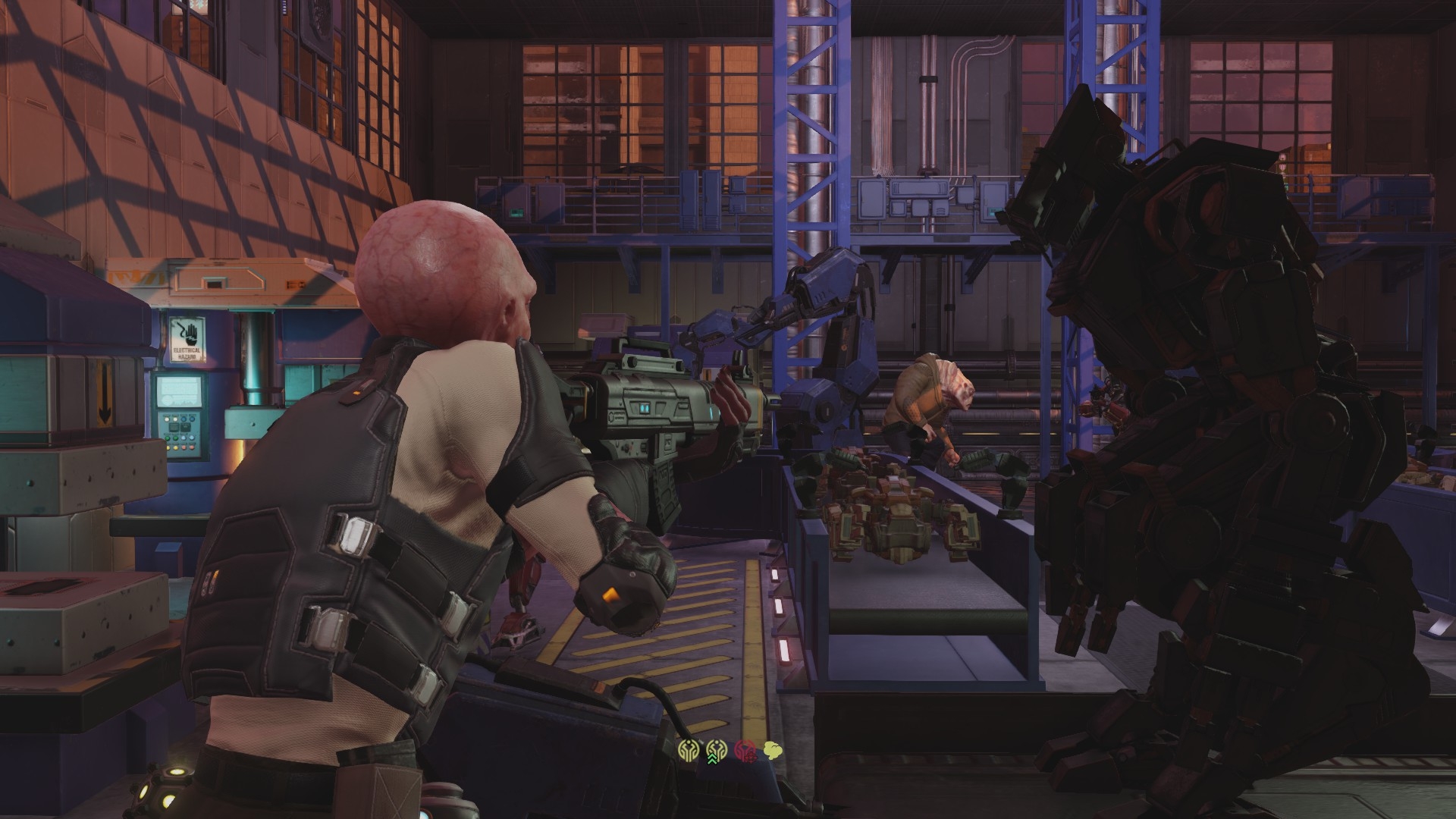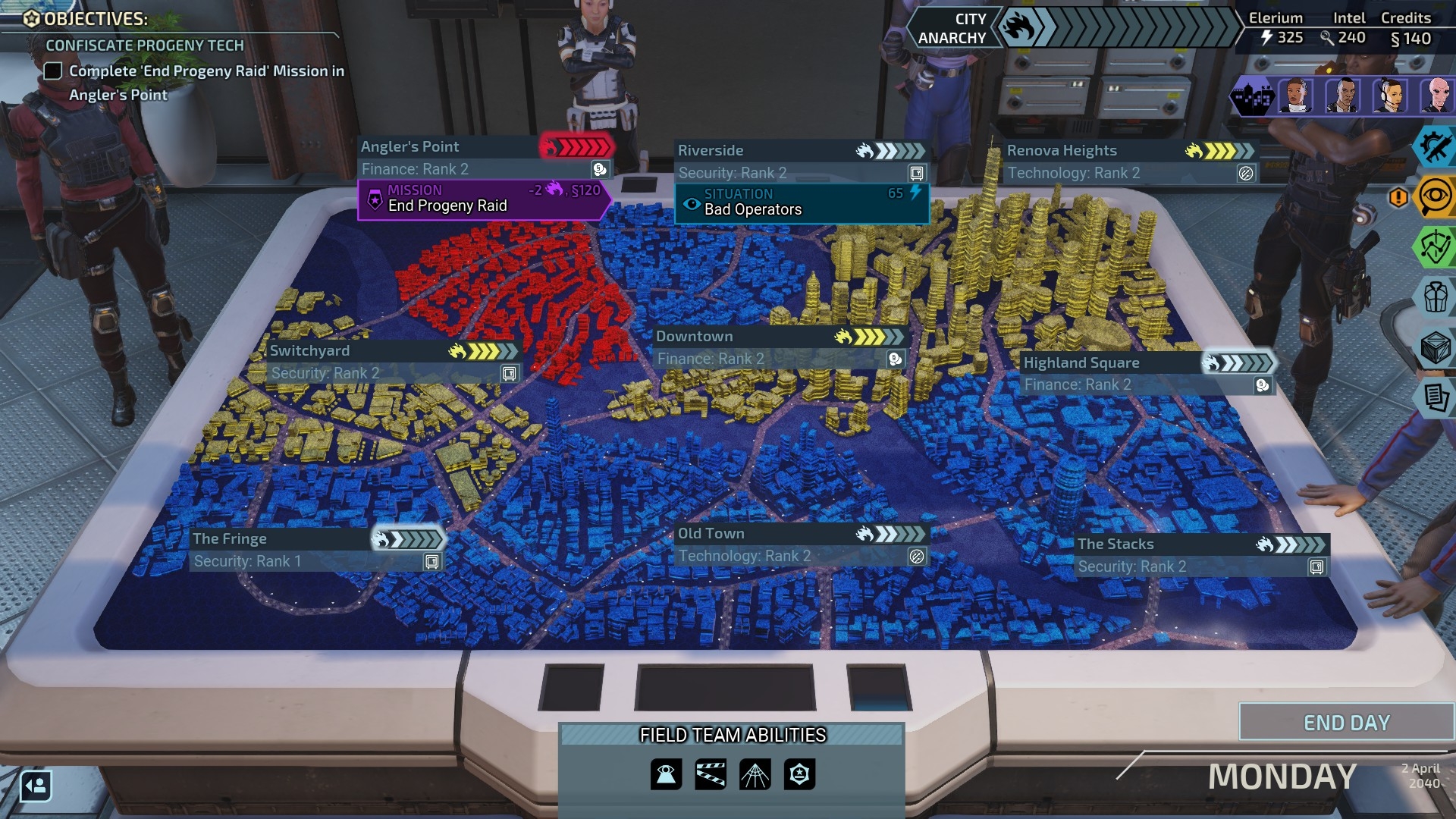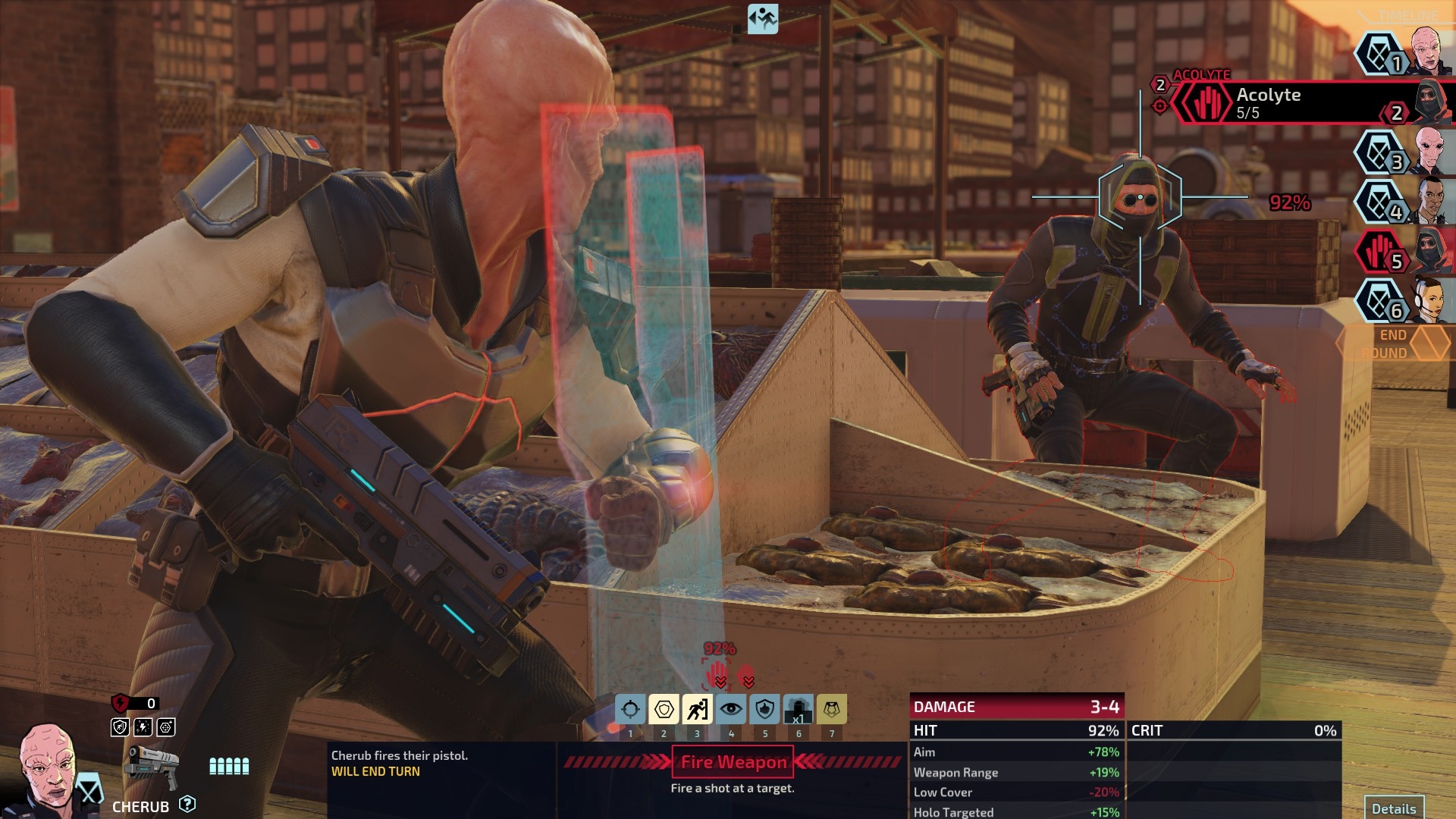XCOM: Chimera Squad tips you need to know before you start your campaign
Save the city from falling into total anarchy.

XCOM: Chimera Squad is a city-scale take on the XCOM fantasy, set years beyond the events of XCOM 2. I had fun playing this one for our XCOM: Chimera Squad review, and I'd like to pass on a few tips I wish I had known before I started my campaign.
Deploy field teams early
On the map view, next to each district's name, you'll notice a little empty box. You can click on these to spend intel and assign a field team to that district. There are three flavours that grant you elerium, intel, and money bonuses respectively. For that reason alone you should prioritise getting field teams up and running in all districts as soon as possible.
They will reliably feed you resources for the rest of the game, and as you level them up (be sure to research the upgrade that let you take field teams to level 3) you can access additional powers. You can see these four buttons at the bottom of the map screen. They let you instantly bring down unrest in a troublesome district. The field teams themselves also work to bring down unrest, keeping the city anarchy bar low. If you have a full set of upgraded field teams, it's actually very hard to lose the campaign.
Field teams cost intel, so it's worth pursuing side missions that reward you with extra intel early in on in the campaign. Invest in non-lethal ammo and other non-lethal upgrades to extract extra intel from missions.
Use breaches to focus fire on problem enemies
Ideally you want to assign your agents to the breach point that best suits their talents. Extra mobility is great for close quarter fighters like Godmother, Zephyr, and Axiom. Difficult entrances that will attract a lot of fire are ideal for Cherub, who can take a lot of the damage on his shield. Pay particular attention to aim bonuses and, the most beautiful buff—a guaranteed hit when breach firing. Put your best gun in that slot and delete the most problematic enemy in the room.
That doesn't mean the enemy with the biggest health bar. Some of the tougher, larger foes can do a lot of damage, but they aren't as disruptive as smaller enemies that buff their pals with extra shields. Each of the three factions pose different threats. I like to take psychic and area-of-effect attacks off the table as soon as possible. I kill anything that can throw a bomb, set fire to the room, or freeze one of my precious agents with their psionic powers.
It's generally better to have your team focus down one or two difficult foes rather than deal chip damage to multiple enemies. The breach phase is an excellent opportunity to take specific enemies out of the scenario, which should make life easier in the turn-based battle that follows.
The biggest gaming news, reviews and hardware deals
Keep up to date with the most important stories and the best deals, as picked by the PC Gamer team.
Also remember that the agent at the second slot at each entrance can use breach items like flashbangs and scanners. It's worth positioning characters like Verge earlier in the breach order, so that the rest of your agents can capitalise when he uses his psychic lift ability to pull an enemy out of cover.

Swap in new heroes
I felt the temptation to stick with my original set of four agents forever, but I enjoyed Chimera Squad a lot more when I started switching new agents into my main combat squad.
At spaced out points in the campaign you have the opportunity to add one of three new agents to your outfit. I find it's best to choose the character that does something no-one else on squad can. I was missing an accurate sharpshooter, so I picked up the master pistolier Blueblood to serve as an executioner in future battles. He's now one of my favourite agents.
XCOM: Chimera Squad is cleverly designed so that you don't lose a huge amount of power when you sub in an green new character. Doing so obviously gives you the opportunity to experiment with new powers and combos in battle, but it also frees up veteran agents to go on training regimes to improve their stats. Advanced agents can take on more complex spec ops too, some of which do the vital job of bringing City 31's overall anarchy level down.
Save some intel for the Scavenger Market
The scavenger market turns up every few turns on the strategy map, giving you the opportunity to purchase tech you probably haven't researched yet. A lot of it is useful—it's great to get a laser sight on Godmother's shotgun—but the main prize is the Motile Inducer. This device gives an ally two actions right away in a fight, which is just insanely good. I picked it up for 75 intel, so keep that in store just in case it turns up in your next shopping trip. I'd prioritise field teams first, though.

Cheat death
If an agent goes down, always stabilise them. I kept the drone engineer Terminal in my squad in almost every mission because her drone can heal and stabilise fallen allies anywhere on the battlefield. Otherwise you need to rely on your most mobile agents to rush to the fallen agent's side, and that's half of your team out of action, unable to deal damage.
The good news is that getting knocked down is nowhere near as punishing as it is in XCOM 2. Soldiers can become wounded and gravely wounded, but that doesn't automatically take them out of action—you can field them in the next mission just fine. Becoming wounded gives an agent the chance of gaining a scar, which amounts to a stat reduction, but in my playthrough I never saw this happen. It helps to know you can be more reckless with your agents. In Chimera's short missions you can even leave someone bleeding out on the battlefield as you extract and they'll still reappear in the locker room back at base.
Part of the UK team, Tom was with PC Gamer at the very beginning of the website's launch—first as a news writer, and then as online editor until his departure in 2020. His specialties are strategy games, action RPGs, hack ‘n slash games, digital card games… basically anything that he can fit on a hard drive. His final boss form is Deckard Cain.


